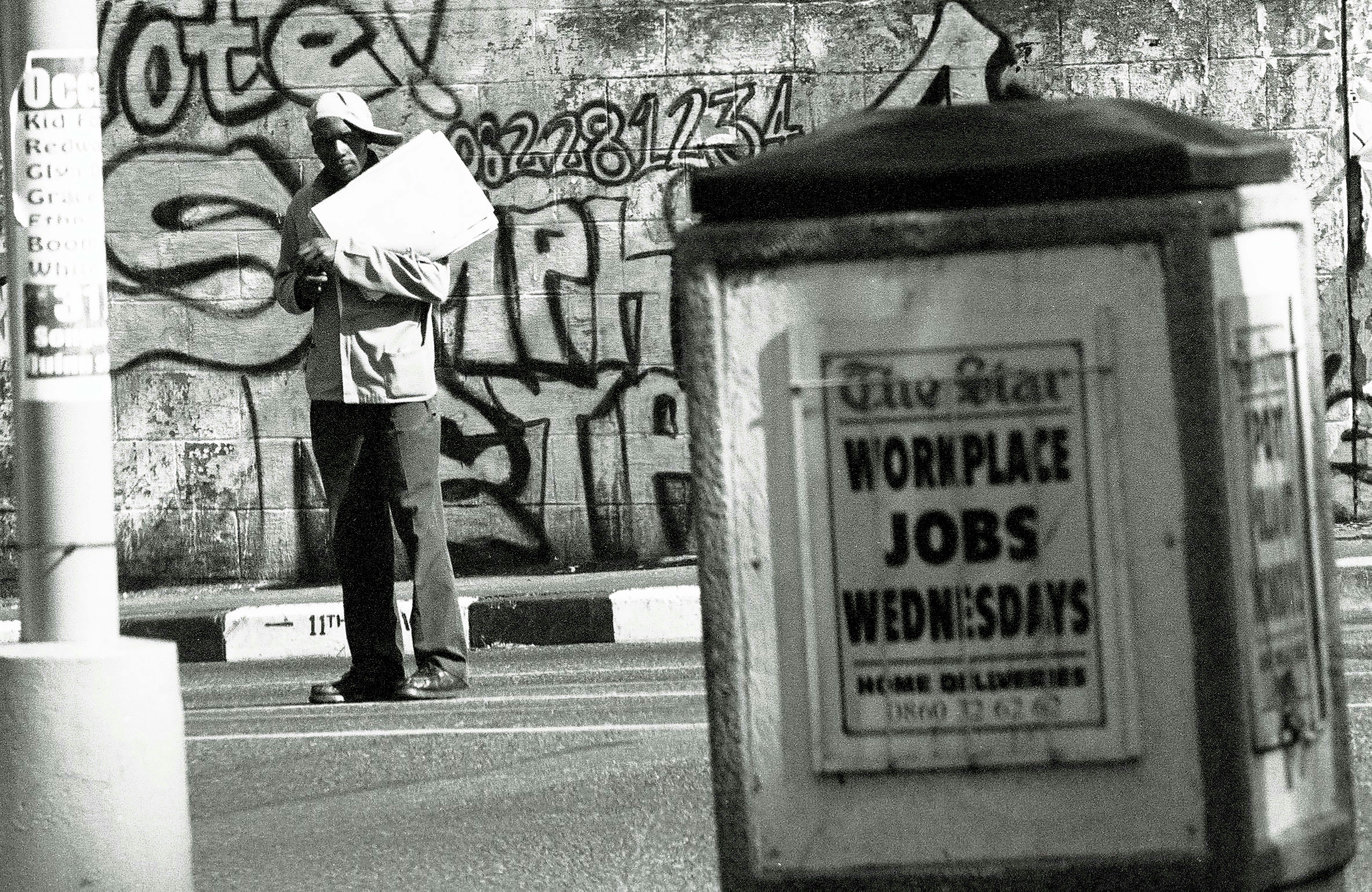
Richard Davis, an esteemed bassist who performed not simply with a number of the greatest names in jazz but in addition with main figures within the classical, pop and rock worlds, died on Wednesday. He was 93.
His loss of life was introduced by Persia Davis, his daughter. She didn’t say the place he died however stated he had been in hospice look after the previous two years.
Mr. Davis, who was named a Nationwide Endowment for the Arts Jazz Grasp in 2014, appeared on greater than 600 albums. A primary-call participant for a number of the most essential figures in jazz historical past, he had fruitful collaborations with the reed participant Eric Dolphy (whose composition “Iron Man” was named for him) and the pianist Andrew Hill. He was a member of the Thad Jones-Mel Lewis Orchestra, which carried out each Monday evening on the Village Vanguard in New York, from the ensemble’s debut in 1966 till 1972.
His superior approach, particularly with the bow, led to work with classical orchestras below Igor Stravinsky and Leonard Bernstein. His adaptability resulted in periods with Van Morrison, Bruce Springsteen, Paul Simon and Bonnie Raitt.
Mr. Davis made 30 albums as a pacesetter or co-leader from 1967 to 2007. He was named greatest bassist within the DownBeat journal readers ballot from 1968 to 1972.
Reviewing a 1986 efficiency at Candy Basil in Greenwich Village by a band led by Mr. Davis and that includes Freddie Waits on drums, the New York Instances music critic Robert Palmer wrote: “The relaxed, barely behind-the-beat swing typical of so many jazz rhythm sections isn’t for them. Their accents fall proper up on prime of the beat, and so they differ their springy ahead momentum with rhythmic whirlpools and rapids and an explosive sense of dynamics.”
Richard Davis was born on April 15, 1930, in Chicago. His mom died in childbirth, and he was adopted by Robert and Elmora Johnson. He was uncovered to music by the information his mom had collected in her native New Orleans and the hymns Mr. Johnson would sing round the home.
He attended DuSable Excessive Faculty in Chicago, the place he studied music below Walter Dyett, who mentored many future jazz stars, and he began taking part in the bass at 15. As he recalled in a 2013 interview printed within the American Federation of Musicians journal Allegro: “I used to be simply enthralled by the sound. The bass was all the time within the background and I used to be a shy child. So I believed perhaps I’d wish to be within the background.”
Mr. Davis credited Mr. Dyett with pushing him to play throughout kinds, and through highschool he additionally studied with Rudolf Fahsbender of the Chicago Symphony Orchestra. He would go on to obtain a bachelor’s diploma in music training from the VanderCook School of Music in Chicago in 1952.
As a younger participant in Chicago, he was mentored by native bassists like Wilbur Ware and Eddie Calhoun. Whereas nonetheless in school, he carried out with the pianist and bandleader Sun Ra, who on the time was nonetheless billed as Sonny Blount.
His first main gig was with the pianist Ahmad Jamal in 1952. He then went on the street with one other pianist, Don Shirley (whose story was informed within the film “Inexperienced Ebook”); this led to his preliminary recordings and finally to his transfer, in 1954, to New York, the place he labored with the singer Sarah Vaughan from 1957 to 1962.
In a 2005 interview for The New York Metropolis Jazz Document, Mr. Davis spoke of how he used facets of his classical research and his time with Ms. Vaughan to create his specific bowing approach:
“A number of the first bass gamers used the bow to play the strolling bass line. And I heard all of that arising as a child. Subsequently, while you begin to research books of bass strategies, you begin out with the bow it doesn’t matter what your intentions are, so there should be some intertwining of what I heard as a child, what I heard working with Sarah Vaughan, desirous to imitate these vocal sounds.”
After his time with Ms. Vaughan, Mr. Davis’s popularity started to develop quickly, as did his discography. The yr 1964 was an particularly important one; he performed on Mr. Dolphy’s final studio recording, “Out to Lunch!”; Mr. Hill’s seminal “Level of Departure”; the drummer Tony Williams’s first album, “Life Time”; and the saxophonist Booker Ervin’s “The Track Ebook.”
Three years later, Mr. Davis made his first album below his personal identify, “Heavy Sounds,” on which he and the drummer Elvin Jones had been co-leaders, launched on the Impulse! label. Over the subsequent a number of years, his work exterior the jazz world expanded: His credit included performing as musical director for Mr. Morrison’s album “Astral Weeks” and offering the haunting bow work on the finish of “The Angel,” on Mr. Springsteen’s album “Greetings From Asbury Park, N.J.”
Mr. Davis continued to launch albums often by the brand new millennium. Within the late 1960s and ’70s he was additionally a member of the New York Bass Violin Choir, led by his fellow bassist Bill Lee, taking part in alongside different luminaries of the instrument like Ron Carter, Milt Hinton and Sam Jones. Within the late 1980s he was a founding member of New York Unit, a trio with the pianist John Hicks and the drummer Tatsuya Nakamura, which recorded eight albums for Japanese labels by 1998.
In an electronic mail, Mr. Carter stated Mr. Davis was “an unbelievable bassist, a fantastic instructor and my expensive good friend.”
In 1977, Mr. Davis left New York to take a place as a professor of music and music historical past on the College of Wisconsin-Madison. “I bought a name providing me a job on the college in Madison as a result of they didn’t have a bass instructor on campus,” he informed OnWisconsin, the college’s alumni journal, in 2011. “I stated, ‘The place’s Madison?’ I requested round if anybody had heard of the place as a result of this faculty saved calling me. Martin Luther King Jr. talked concerning the significance of educating others, and I had all the time wished to show younger individuals. I believed perhaps it was time.”
He retired from educating in 2016. In 2018, Richard Davis Lane in japanese Madison was named in his honor.
Full info on survivors was not instantly obtainable.
Along with his recorded work and his affect on generations of scholars, Mr. Davis leaves behind two legacies — one musical, the opposite societal.
The Richard Davis Basis for Younger Bassists, which he created in 1993, conducts an annual convention for younger gamers to be taught from professionals and carry out with each other. And in 2000, Mr. Davis established the Madison chapter of the Middle for the Therapeutic of Racism, an outgrowth of his founding in 1998 of the Retention Motion Mission on the College of Wisconsin to enhance commencement charges for college students of shade.
His activism was linked to his earliest experiences attempting to be a classical participant., he stated within the 2005 interview:
“My setting with race points began the day I used to be born. You’re born with darkish pores and skin, and that itself brings on attitudes of different people who find themselves not dark-skinned to see you as somebody to be oppressed and to not be given equal possibilities in society. So that’s one thing that’s everlasting.
“I used to be 18 years outdated and I may play any and the entire European classical music,” he continued, “however you weren’t allowed to take part within the symphony orchestra as a result of there have been racial points and prejudices. They didn’t need to see you.”
The bassist William Parker, who studied with Mr. Davis as younger man in New York, stated: “Richard Davis was a phenomenal musician and human being. He jogged my memory of an African king, regal and robust. I reward him not as a result of he may play each classical and jazz. I applaud him as a result of the brother had a giant, poetic sound filled with freedom.”
Mr. Davis, he added, “taught me some issues about music, however his primary message was ‘Be your self.’”






